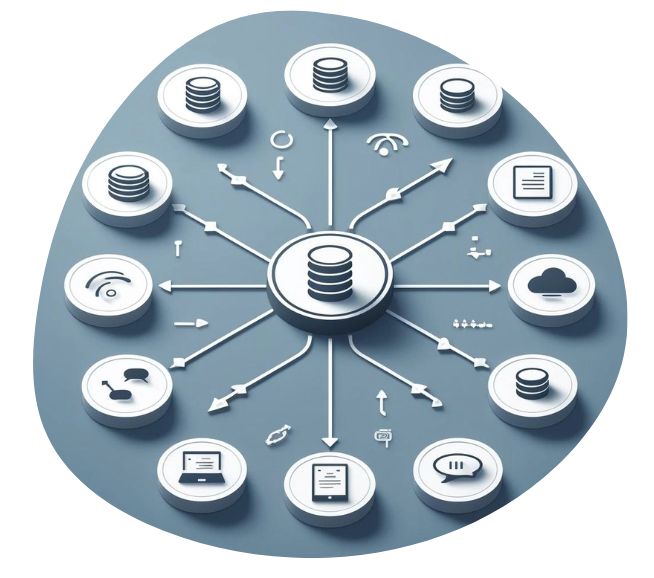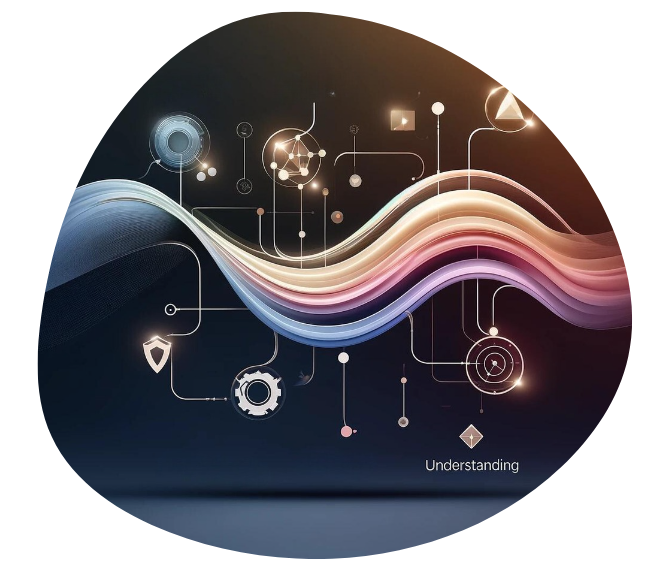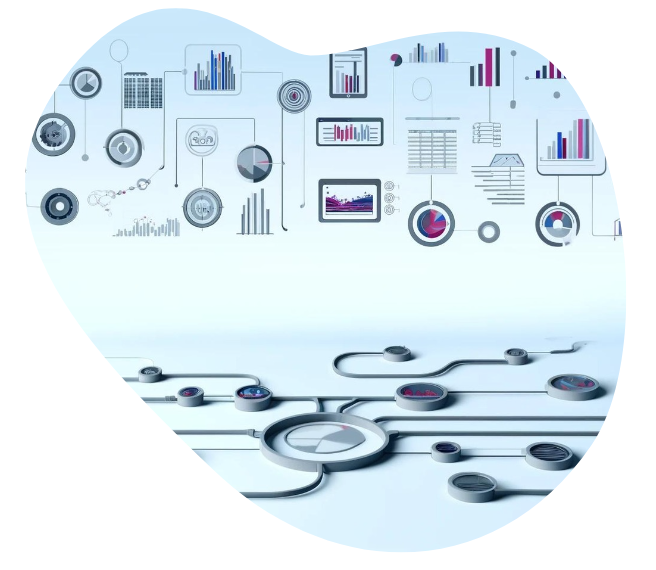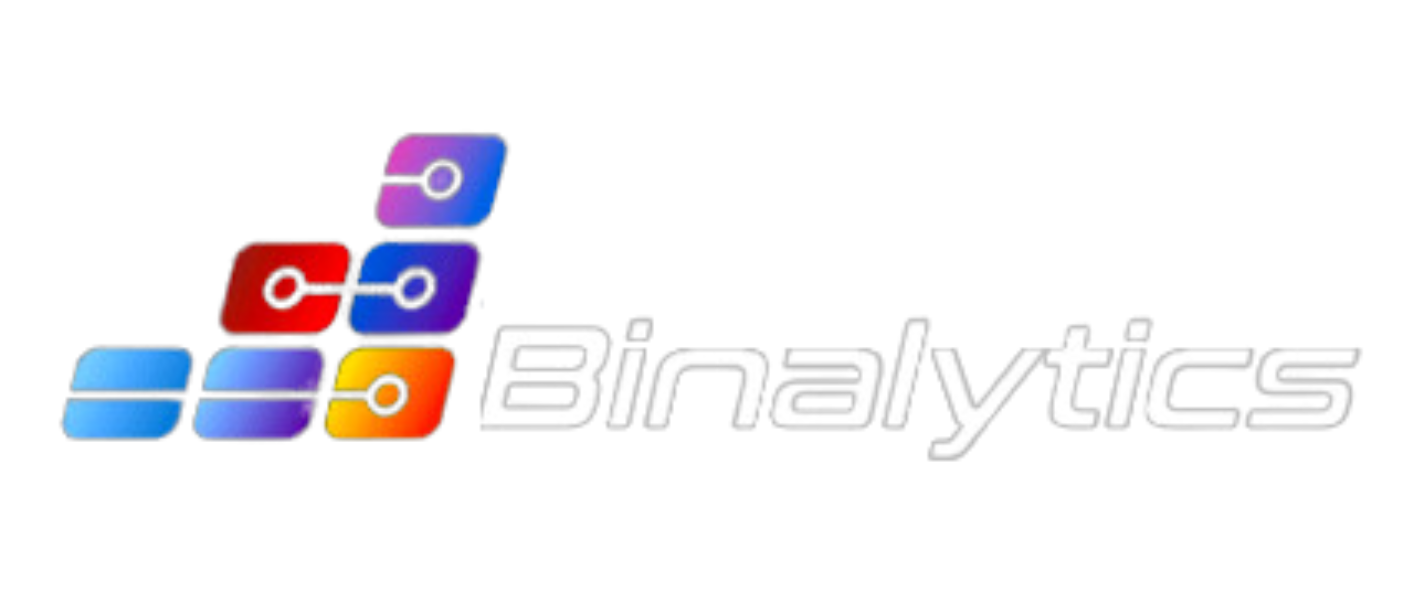Data Engineering Solution
Data Engineering includes all activities related to the data value chain. Its focus is based on the ETL (Extract, Transform, Load) that determines the tasks of extraction, transformation, and loading of data, guaranteeing the quality, standardization, and structure of the data, which will also allow the exploitation, analysis, and interpretation of the information for their proper decision-making within the company.
If your organization faces challenges with data silos, disorganization, inconsistency, lack of integration, or inadequate analysis, our data engineering solution is specifically designed to transform these challenges into opportunities and competitive advantages.
Through a comprehensive methodology that spans from data collection to in-depth analysis, we offer a unified approach to ensure that these resources are accessible, coherent, and ready to be fully leveraged.
Discover how we can help you simplify strategic decision-making through clear and precise data. With our solution, data becomes a powerful asset to drive innovation and sustainable growth in your company.
ADD VALUE TO YOUR DATA
Turn Information into Action
Building a data pipeline is a complex and essential process in data engineering, involving several key stages to ensure the quality and accessibility of data within an organization.
Stages of the Solution

In this stage, we focus on gathering information from various sources (both internal and external) and in different formats. We use APIs and specific application connectors of the organization to create connections that automate access to all necessary data.
During collection, it is not only important to capture large volumes of data but also to ensure that the collected data are relevant and of high quality for the organization’s objectives.
Benefits
- Centralized Access: Having all data in one place facilitates its management and analysis.
- Operational Efficiency: Reduces the time and effort required to access and prepare data for analysis.
- Information Security: We ensure that the collected data is handled securely, protecting the integrity and confidentiality of the information.

Data storage is a critical phase in the data pipeline, ensuring that collected data is stored efficiently, securely, and accessibly for future processing and analysis stages. This phase involves several key considerations to ensure data integrity and availability.
Ensuring data accessibility is essential to maximize the value an organization can derive from its information. It ensures that data is available to those who need it, when they need it, and under appropriate security and control conditions.
Having data stored in an accessible manner:
✅ Facilitates informed decision-making.
✅ Promotes collaboration and innovation.
✅ Optimizes operational processes.
✅ Supports compliance and data governance.
✅ Fosters a data-driven culture.

Data quality refers to the degree to which data is accurate, complete, consistent, current, and valid for its intended purpose. These dimensions are essential to ensure that data is reliable and useful for analysis and decision-making. Without adequate quality, even the best analysis systems can produce incorrect results.
Accuracy reflects the extent to which data represents reality. Completeness indicates the absence of missing data. Consistency shows coherence between different data sets. Timeliness reflects the data’s currency and up-to-dateness. Validity ensures compliance with business rules and expected formats.
In this stage, data also needs to be normalized or standardized to ensure it has a consistent format. This is especially important when data comes from different sources, as it allows for comparability and combinability.
Next, we combine data from different sources into a coherent and unified system. Effective integration is crucial to providing analysts and decision-makers with a complete and accurate view of the information.
Standardization facilitates analysis operations, and integration allows for more comprehensive analysis by combining data from multiple sources.
This step ensures the usefulness and connectivity of the data, facilitating its analysis and revealing new insights.

In this stage of data analysis and understanding, valuable insights are derived, and decisions are made based on the collected, stored, and transformed information. This stage is crucial for transforming data into useful knowledge that drives business objectives.
Several types of analysis can be performed, each with a specific purpose and appropriate techniques.
1. Descriptive Analysis
-
- Purpose: Provide an overview of the data, answering questions like “What happened?”
2. Diagnostic Analysis
-
- Purpose: Determine the underlying causes of the events and patterns identified in the descriptive analysis, answering questions like “Why did it happen?”
3. Predictive Analysis
-
- Purpose: Predict future events and trends, answering questions like “What will happen?”
4. Understanding of Data
-
- Purpose: Develop a deep and holistic view of the data in the business context, aligning the analysis with strategic objectives.

The data visualization and consumption stage is the final phase of the data pipeline, where processed and analyzed information is presented in a way that is easy to understand and use for making informed decisions.
This stage is crucial for communicating the obtained insights to stakeholders and ensuring that the data is applicable and useful in the business context, enabling organizations not only to understand their data but also to act on it effectively and strategically.
We can deliver visualizations using top industry tools such as Tableau, Power BI, and QuickSight.
For data consumption, custom and automated dashboards are designed, implemented, and maintained to provide a consolidated view of key performance indicators (KPIs) or relevant business objectives.

Start your journey here
Our team will be happy to advise you, with no obligation. Let’s discuss your project and find the perfect solution for your needs!
E-mail: info@binalytics.ai
Solutions
© 2022 | Binalytics SAS Company | All Rights Reserved

